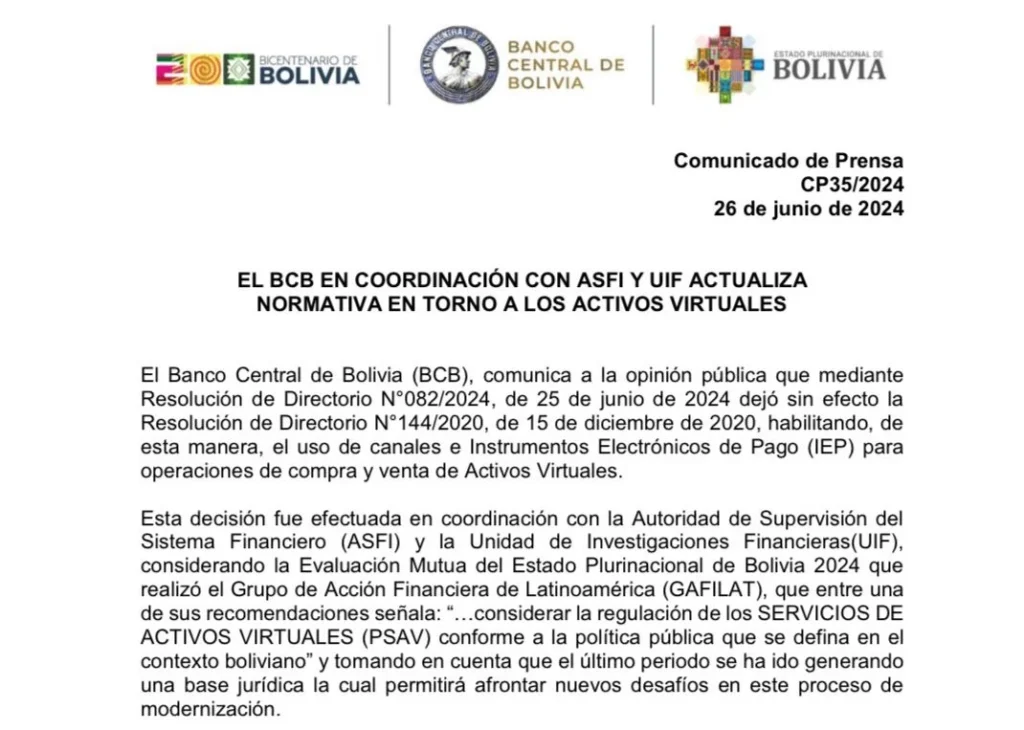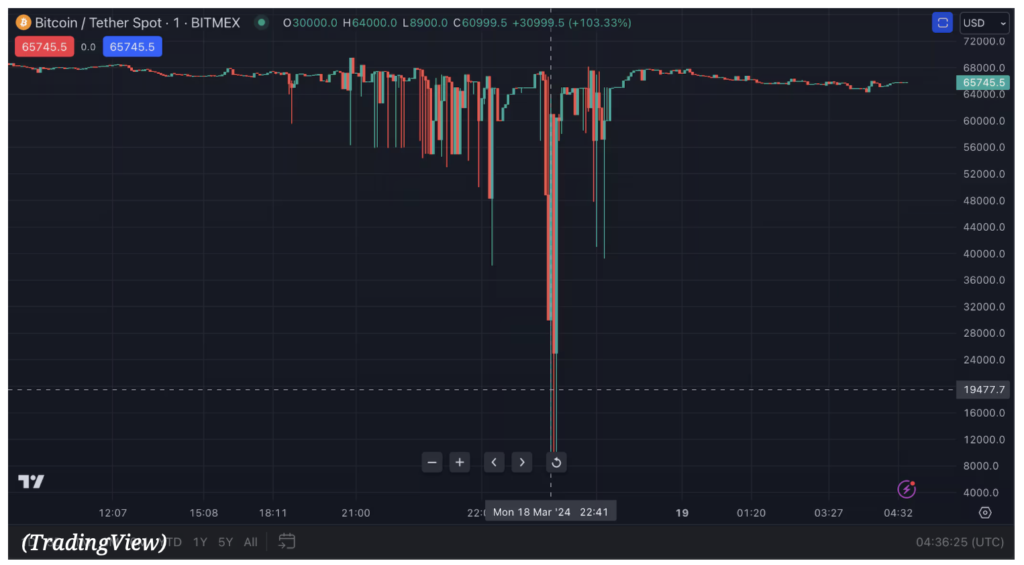
In a dramatic policy reversal, the Banco Central de Bolivia lifted the restriction on Bitcoin transactions. Financial institutions in Bolivia will now be able to transact digital assets. This endeavor is part of a bigger attempt to revamp the country’s payment systems.
With this action, which took effect on June 26, Bolivia has lifted a ban on the use of cryptocurrencies that has been in place since 2014. This reflects Bolivia’s intention to revive its faltering economy and align with more comprehensive Latin American cryptocurrency laws.
Historical Context
Previously, banking organizations in Bolivia were banned from dealing with cryptocurrencies according to Board Resolution No. 144/2020, which was published in December 2020.
Therefore, although corporations can exchange digital assets through banks, they are not required to accept them as payment.

Source: Banco Central de Bolivia
The population will now have “an additional mechanism that will contribute to the strengthening of financial and commercial activities,” according to central bank president Edwin Rojas Ulo.
However, the organization clarified that these digital assets are neither cash nor legal tender, and the Boliviano (BOB) is the only acceptable mode of payment in the country. This means that the risk involved in the use and sale of these digital assets will fall on the users.
The Central Bank of Bolivia plans to launch an economic and financial education plan to educate the public about the potential risks associated with cryptocurrencies and the importance of managing them responsibly.
Growth in Cryptocurrencies by Regions
As a response to ongoing inflation and unstable economies, Latin America is becoming more and more reliant on cryptocurrencies. Because of their unique economic environments, many countries in the region have taken different stances regarding cryptocurrencies.
In 2021, El Salvador took the lead by becoming the first and only country in the world to accept Bitcoin as a legal currency alongside the US dollar. This unprecedented action was aimed at boosting economic growth and improving financial inclusion.
Although Mexico does not accept cryptocurrency as a legal tender, it allows its use for payments and value transfers.
As well, Brazil has implemented income tax legislation for cryptocurrency gains, levying a 15% tax, reflecting the growing adoption and integration of digital currencies into its financial system.
To rein in rampant inflation, Argentina elected a pro-Bitcoin president, following the lead of El Salvador.
Bolivia is now joining its neighbors in strategically integrating digital assets to promote economic stability and a modern financial sector.
